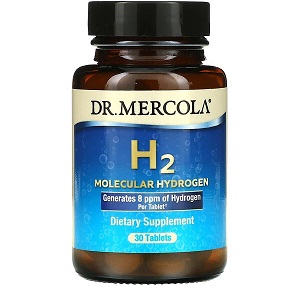Anti-Aging News: University of Exeter Study Shows Small Amounts of Hydrogen Sulfide Help Individuals Live Healthier For Longer Periods
TMN News Team Aug 01, 2023 2 years, 6 months, 3 weeks, 1 day, 3 hours, 13 minutes ago
Hydrogen sulfide extended healthspan and improved mitochondrial integrity, indicating potential benefits for aging individuals
Anti-Aging News: Medical advances have undoubtedly increased human lifespan, but they have also led to a longer period spent in a frail and "poor health" state, burdening healthcare systems and affecting the quality of life for many. Therefore, finding interventions that not only increase lifespan but also promote healthspan (the duration spent in good health) has become a critical goal in aging research.

In this pursuit, a groundbreaking study conducted by researchers at the University of Exeter has revealed the potential of a molecule called hydrogen sulfide (H2S) to promote healthy aging. Hydrogen sulfide is an ancient and essential signaling molecule, and previous studies have shown its positive effects in correcting disease-related mitochondrial metabolic deficiencies and promoting healthspan at supraphysiological concentrations.
However, the current research explored the efficacy and mechanisms of a mitochondrion-targeted sulfur donor called AP39, which releases small, clinically meaningful doses of hydrogen sulfide. Using the Caenorhabditis elegans worm as an aging model, the researchers compared the effects of untargeted H2S donors with those of AP39 on lifespan, healthspan, and mitochondrial integrity.
Surprisingly, they found that the small doses of hydrogen sulfide delivered by AP39 extended healthspan and improved mitochondrial integrity in older worms, indicating potential benefits for aging individuals.
Moreover, the study revealed that adult-onset AP39 therapy also promoted healthy aging, even when mitochondrial and cell structural dysfunction had already manifested.
The study team further explored the molecular events underlying healthspan extension by using RNA interference pharmacogenetic interventions and transcriptomics/network analysis. They discovered that the mechanisms governing healthspan extension with AP39 treatment involved various elements of H2S metabolic pathways and the FoxO/daf-16 transcription factor, while the Nrf2/skn-1 antioxidant system was found to be dispensable.
Notably, adult-onset AP39 treatment rejuvenated aging transcriptomes by minimizing the decline of mitochondrial, cytoskeletal, and peroxisomal components. This rejuvenation process was under the regulation of the elt-6/elt-3 transcription factor regulatory circuit, a GATA family of transcription factors.
The research findings provide a valuable framework for translating mitochondrial sulfide into potential healthy aging interventions in mammals. These discoveries hold significant promise for developing therapies that help individuals lead healthier lives for longer, alleviating the burden on healthcare systems and improving the overall quality of life for the aging population.
The potential for this research to be translated into future therapies is enormous. By targeting hydrogen sulfide specifically to mitochondria, the energy-generating machinery of cells, scientists hope to address age-related mitochondrial decline, a major contributor to various age-related health conditions. This approach could potentially slow down the aging process, mitigate age-related diseases, and significan
tly improve the healthspan of individuals as they age.
Corresponding author, Dr Matthew Whiteman, told
Anti-Aging News reporters at Thailand Medical News, “While the research is not about extending life per se but about enabling individuals to live healthier lives well into older age. This focus on healthspan could have far-reaching benefits for society, as people may not only live longer but also maintain their vitality and activity levels, even in old age.”
The study's groundbreaking findings have generated excitement among researchers, and the next stages of research and development are eagerly anticipated.
The University of Exeter has assigned the underlying technology to its spin-out company, MitoRx Therapeutics, which is working on next-generation compounds with improved drug characteristics for potential use as medicines against age-related diseases, including neurodegenerative disorders and muscular dystrophy.
In conclusion, the University of Exeter's study has shed light on the potential of hydrogen sulfide as a powerful tool for healthy aging. The targeted delivery of small amounts of hydrogen sulfide to mitochondria represents a novel and promising approach to promote healthspan and improve the quality of life for aging individuals. As further research and development unfold, the dream of living healthier for longer may become a reality for millions, offering a brighter and more vibrant future for the aging population.
The study findings were published in the peer reviewed journal: PNAS
https://www.pnas.org/doi/10.1073/pnas.2216141120
MEDICAL DISCLAIMER: Please note that this article is based simply as research findings and not as medical advice. Hydrogen Sulphide has not been approved by any regulatory agency around the world for anti-aging. Please do not attempt to take hydrogen suphide supplements without consulting a licensed medical doctor first.
For the latest
Anti-Aging News, keep on logging to Thailand Medical News.
Read Also:
https://www.thailandmedical.news/news/scientists-from-university-of-texas-discover-that-hydrogen-sulfide-can-be-used-to-treat-covid-19-associated-lung-endothelial-barrier-disruption
